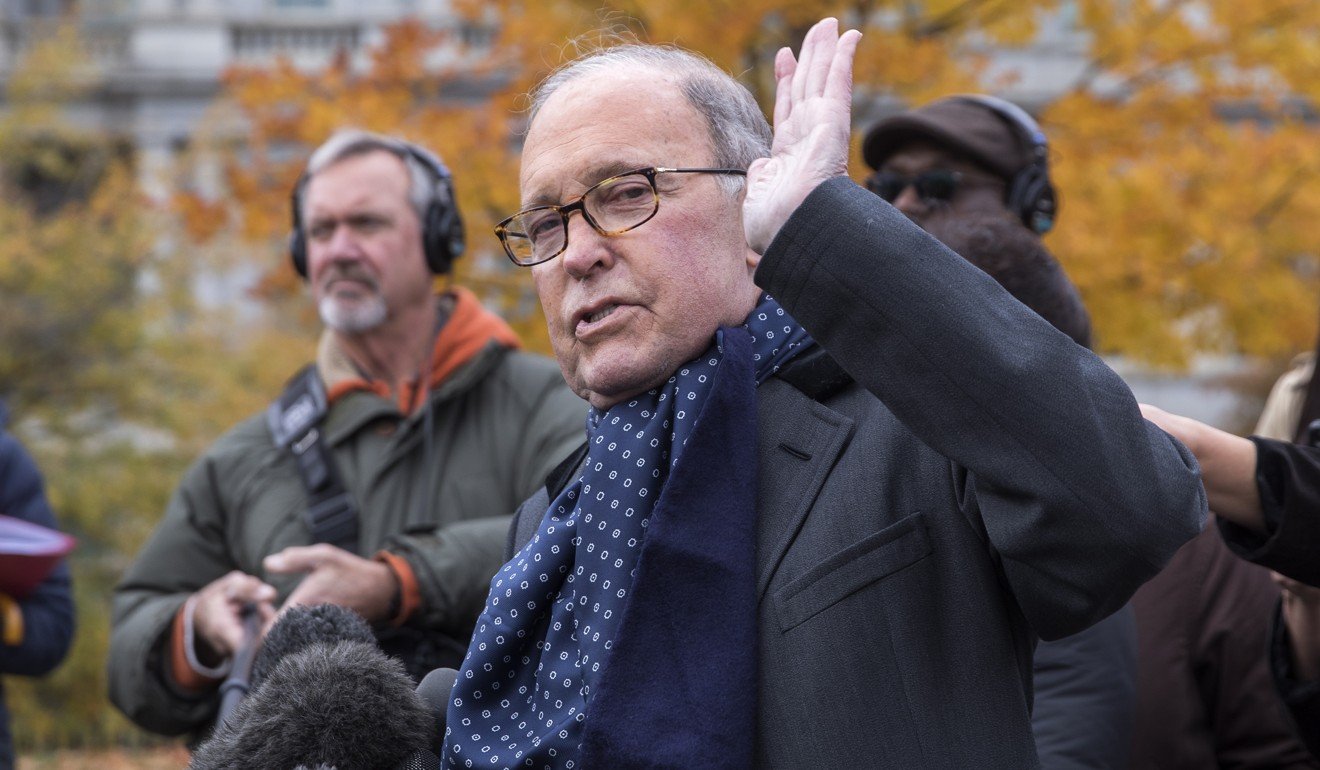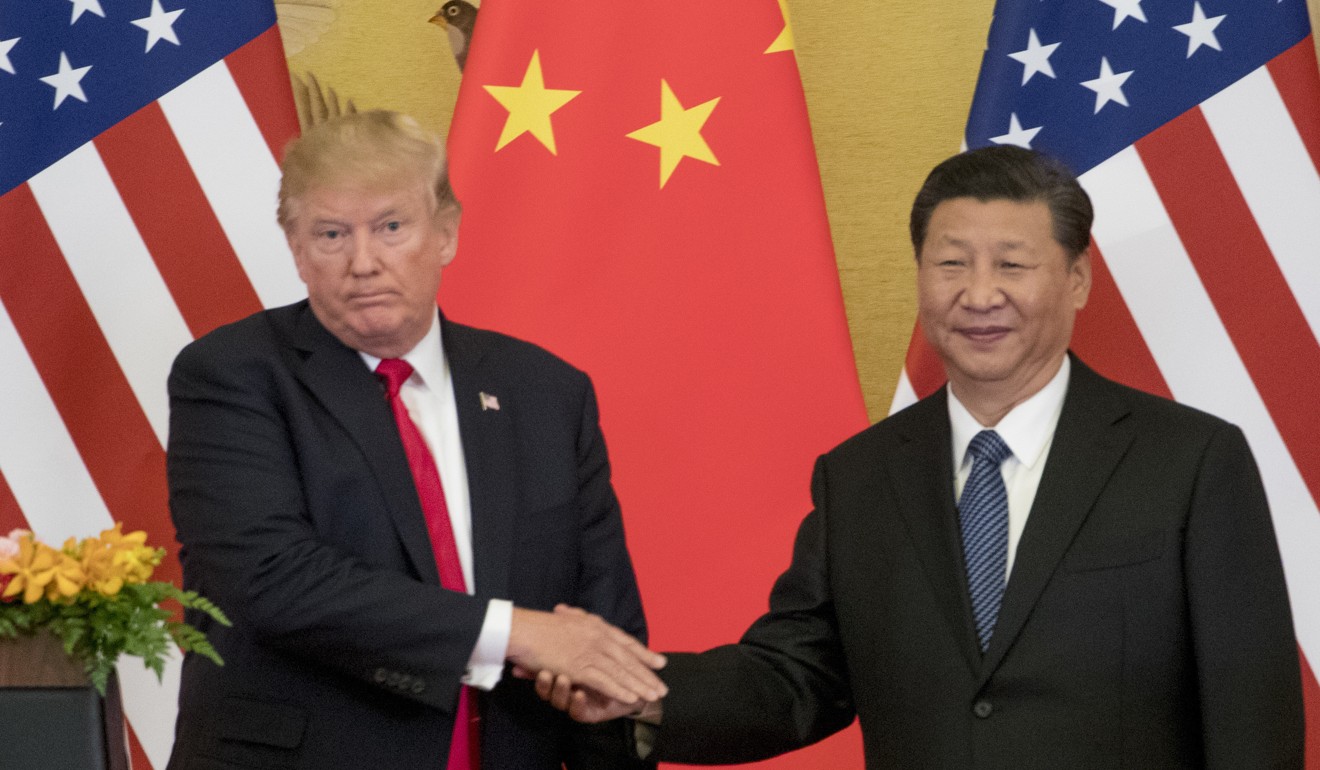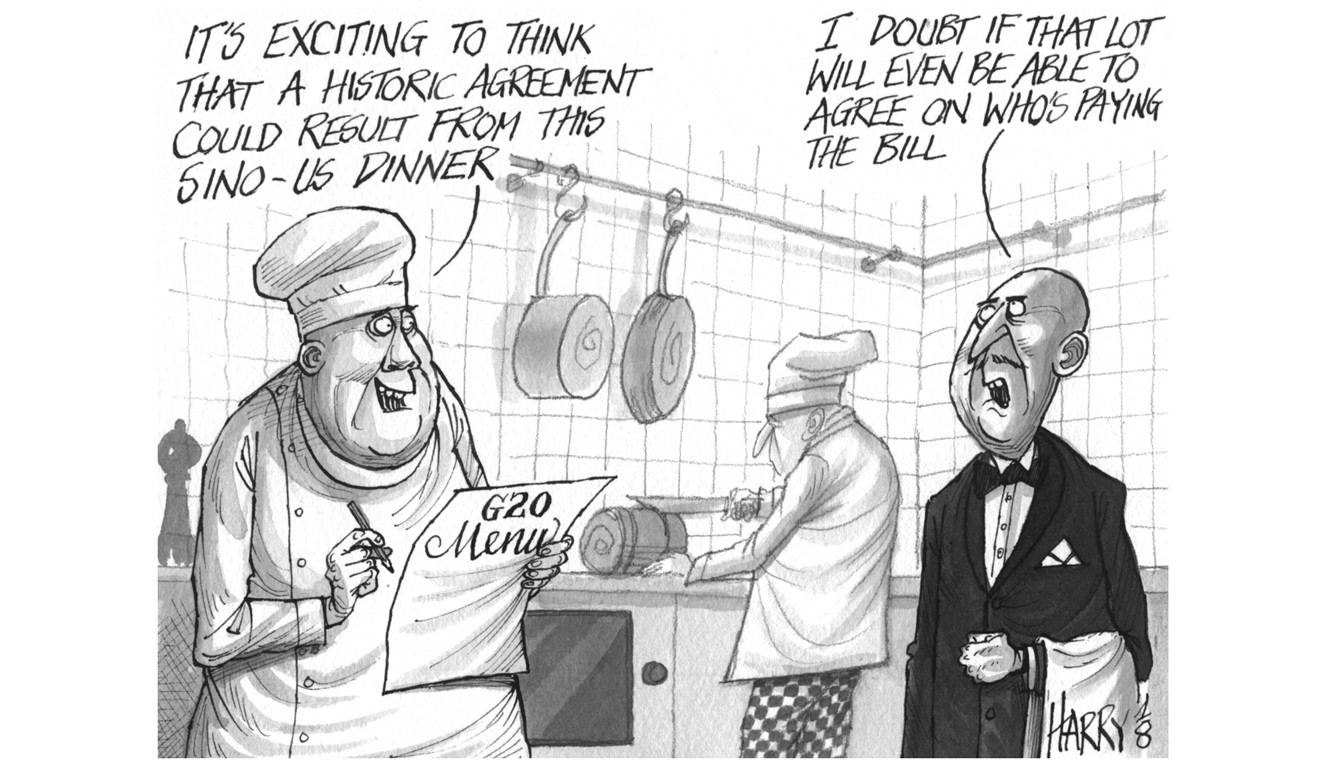
Exclusive | White House trade adviser Peter Navarro ‘excluded from Xi Jinping-Donald Trump dinner’
- Beijing and Washington are still in the process of finalising guest list for the high-stakes meeting in Buenos Aires, according to source
- Outspoken China hawk Navarro is a key figure behind the trade war
Peter Navarro, the controversial White House trade policy adviser and a famous China hawk, will not be on the guest list when US President Donald Trump meets his Chinese counterpart Xi Jinping in Buenos Aires on December 1, according to a source with knowledge of the matter.
“Navarro will not attend the summit,” the person told the South China Morning Post on condition of anonymity.
The source added that Beijing and Washington were still in the process of finalising the list of advisers taking part in the key diplomatic event that could influence trade and economic relations between the world’s two biggest economies for years to come.
The Trump administration’s decision to exclude Navarro – a key figure behind the trade war with China – from the high-stakes dinner in Argentina comes amid signs from both sides that they want to make progress on the dispute at the summit.

White House chief economic adviser Larry Kudlow said in an interview with Fox Business News on Tuesday that Trump was trying to “inject a note of optimism” into trade talks with China.
“He [Trump] believes that China would like to have a deal,” Kudlow said, adding there were “very detailed communications” between China and the US taking place at all levels of government.
With Navarro excluded, other candidates to accompany Trump to the dinner include Kudlow, US National Security Adviser John Bolton, Secretary of State Mike Pompeo, Treasury Secretary Steve Mnuchin, Commerce Secretary Wilbur Ross, US Trade Representative Robert Lighthizer and US ambassador to China Terry Branstad.
Earlier this month, Navarro, an outspoken anti-China voice and author of the book Death By China, accused Wall Street “globalist billionaires” of acting on Beijing’s behalf, and in their own interests, in seeking a truce in the trade war.
“Consider the shuttle diplomacy that is now going on by a self-appointed group of Wall Street bankers and hedge fund managers between the US and China,” Navarro said on November 9.
“As part of a Chinese government influence operation, globalist billionaires are putting the full court press on the White House in advance of the G20 in Argentina. The mission of these unregistered foreign agents – that’s what they are, unregistered agents – is to pressure this president into some kind of a deal.”
After Apec tensions, expect ‘extra pressure’ when Xi Jinping and Donald Trump meet at G20
Kudlow dismissed Navarro’s accusations a few days later, calling his comments “way off-base”.
“I actually think he did the president a great disservice. I think Peter very badly misspoke. He was freelancing, and he’s not representing the president or the administration,” Kudlow said in an interview with CNBC.

Trump has significantly toned down his rhetoric about China and trade since late September, when the administration imposed 10 per cent tariffs on US$200 billion worth of Chinese imports.
From July 6, when Washington slapped the first round of duties on Chinese goods, to the most recent tariff announcement on September 18, Trump tweeted about China 20 times, trade 42 times and tariffs 21 times.
Since then, Trump has only mentioned China five times – the latest on November 1, when he said he had a “a long and very good conversation” with Xi on many subjects, with a “heavy emphasis on trade”. He has mentioned tariffs twice since September 18, and trade 19 times – mostly in reference to the renegotiation of the North American Free Trade Agreement, or in relation to other trade partners.
Meanwhile, his administration is divided between the hardline hawks like Navarro and Lighthizer seeking maximum concessions from China versus pragmatists like Kudlow and Mnuchin who are more willing to seek a compromise – and that will make it more difficult for Trump and Xi to reach any deal.
Lighthizer, the US trade chief and a key architect of the tariff war, released a report on Tuesday saying China had so far failed to change the behaviour that had prompted the US to impose tariffs on around US$250 billion worth of Chinese goods.
He made the statement in conjunction with an update to the US investigation into China’s intellectual property theft under Section 301 of the 1974 Trade Act. That investigation and its initial report in March provided the legal basis for Trump to impose tariffs on nearly half of all US imports from China.

“This update shows that China has not fundamentally altered its unfair, unreasonable and market-distorting practices that were the subject of the March 2018 report on our Section 301 investigation,” the trade chief said in a statement.
Xi and Trump have both made their point. It’s time to end the posturing, and the trade war
Alan Wheatley, an associate fellow of international economics at British think tank Chatham House, said US-China relations would be bumpy with or without an agreement on a trade war ceasefire in Argentina.
“The US has made it clear that it regards China as posing a much broader strategic challenge to US economic and military supremacy,” Wheatley said. “A truce would spell welcome short-term relief to nervous global markets but wouldn’t be a game-changer for relations between the two.”
Additional reporting by Chad Bray

